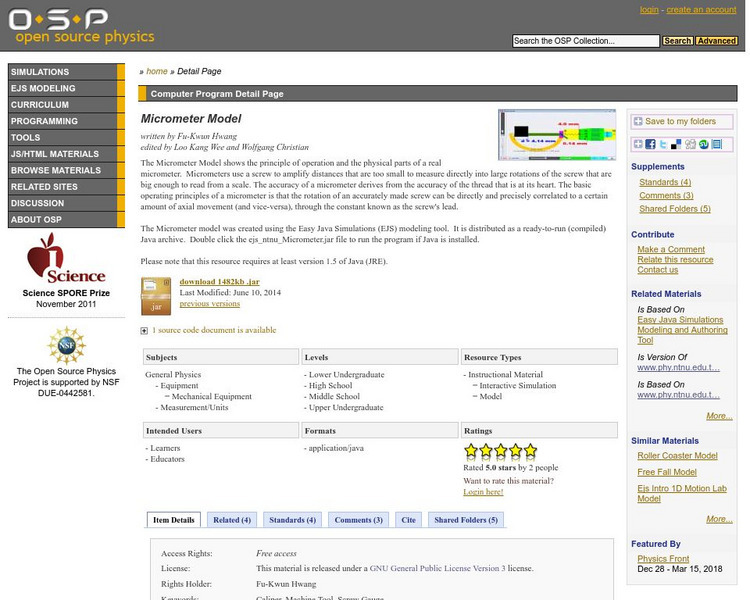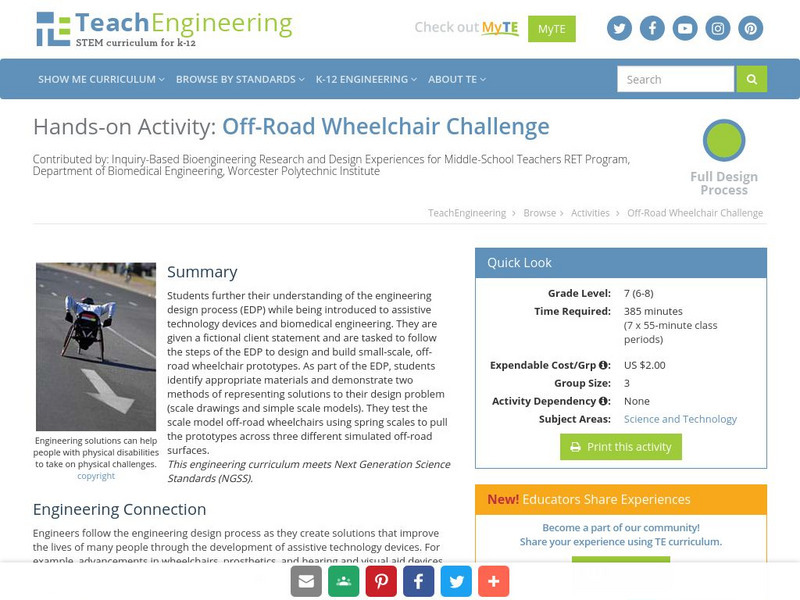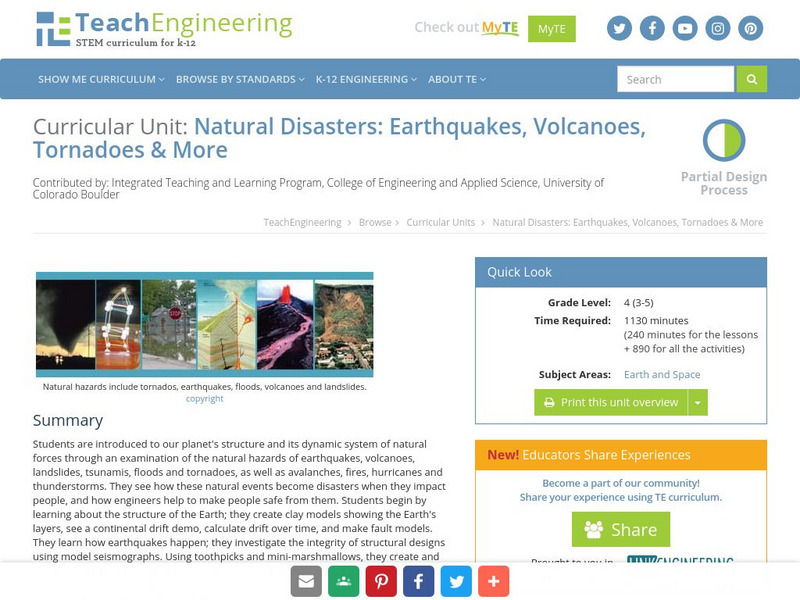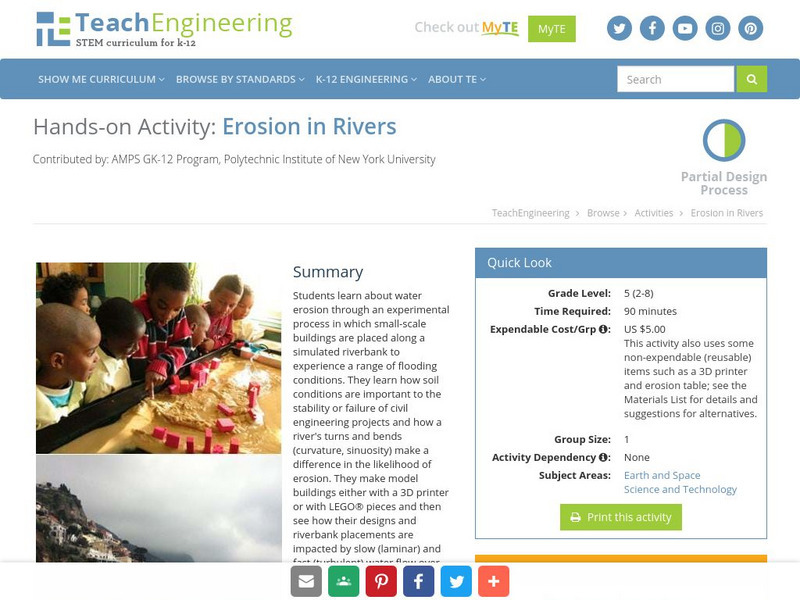Curated OER
Simple Machines
Learners explore the concepts of force and effort by observing simple machines. In this physics lesson, students attempt to sharpen a pencil without any help, bite into an orange with their lips curled over their teeth, and other...
Curated OER
Getting a Little "Lift"out of Calculus
Students, after entering the given conditions into FoilSim, apply calculus techniques to verify predictions.
Curated OER
Dough Lake Topology
Learners practice coordinates and measurements, develop 2D, 3D topological map, construct grid with string on real surface, establish "level" fixed point for measurements, take and record data points of elevation, and enter data on...
Curated OER
Structure of the Earth
Sixth graders examine the layers of the Earth and the changes that take place on a daily basis. They look at the layers of a boiled egg to relate them to the layers of the Earth.
Curated OER
Leonardo Lives
Students investigate the concepts of force and motion. They describe how motion is created by force. Also students define a simple machine and the factors of application to creating force or motion. They analyze the plans of Leonardo De...
Curated OER
Making New Electricity
Students investigate the concepts of energy conversion and conservation. They research the history of energy conversions into electrical energy. They design experiments in order to replicate a conversion of energy into electricity.
Curated OER
Can You Dig It?
Young scholars investigate a fossil site and diagram a site map. They role play as paleontologists.
Curated OER
Surface Area and Volume of a Cube
Students explore finding the surface area and volume of cubes and cylinders. They construct similar three-dimensional figures from a two-dimensional drawing. Students derive the formula for volume and surface area through examination...
Curated OER
Apply Technological Design and Scientific Habits of Mind
High schoolers are introduced to the principles involved with technological design. In groups, they use the Internet to research an important historical innovation and how it changed the world. They discover the barriers that were...
Curated OER
Creating and Analyzing Graphs of Tropospheric Ozone
Students create and analyze graphs using archived atmospheric data to compare the ozone levels of selected regions around the world.
Indiana University
Indiana University Bloomington: Modeling Liquefaction [Pdf]
This activity allows students to observe a small-scale model of liquefaction, a hazard associated with strong-magnitude earthquakes. The sand, water, and ping pong ball(s) represent the composites of soil: sediment, water, and air,...
American Association of Physics Teachers
Com Padre Digital Library: Open Source Physics: Micrometer Model
Use this virtual model to simulate the basic operations and accuracy of a micrometer while manipulating the physical parts of the object.
TeachEngineering
Teach Engineering: Off Road Wheelchair Challenge
Students further their understanding of the engineering design process (EDP) while being introduced to assistive technology devices and biomedical engineering. They are given a fictional client statement and are tasked to follow the...
TeachEngineering
Teach Engineering: Natural Disasters
Students are introduced to our planet's structure and its dynamic system of natural forces through an examination of the natural hazards of earthquakes, volcanoes, landslides, tsunamis, floods and tornados, as well as avalanches, fires,...
Concord Consortium
The Concord Consortium: Molecular Workbench Zoom It
See examples of scales based on a range from ten to the twelfth meters to ten to the negative twelth meters. Examples range from parts of our solar system to the nucleus of an atom.
TeachEngineering
Teach Engineering: Erosion in Rivers
Students learn about water erosion through an experimental process in which small-scale buildings are placed along a simulated riverbank to experience a range of flooding conditions. They make model buildings either with a 3D printer or...
Science Education Resource Center at Carleton College
Serc: Lab 2: What's a Watershed?
Students build a physical model to simulate watershed features, then use Google Earth software to tie the model to a real place. By exploring several layers of map-based images and data, students learn the complexity of a watershed and...










![Indiana University Bloomington: Modeling Liquefaction [Pdf] Lesson Plan Indiana University Bloomington: Modeling Liquefaction [Pdf] Lesson Plan](https://static.lp.lexp.cloud/images/attachment_defaults/resource/large/FPO-knovation.png)





